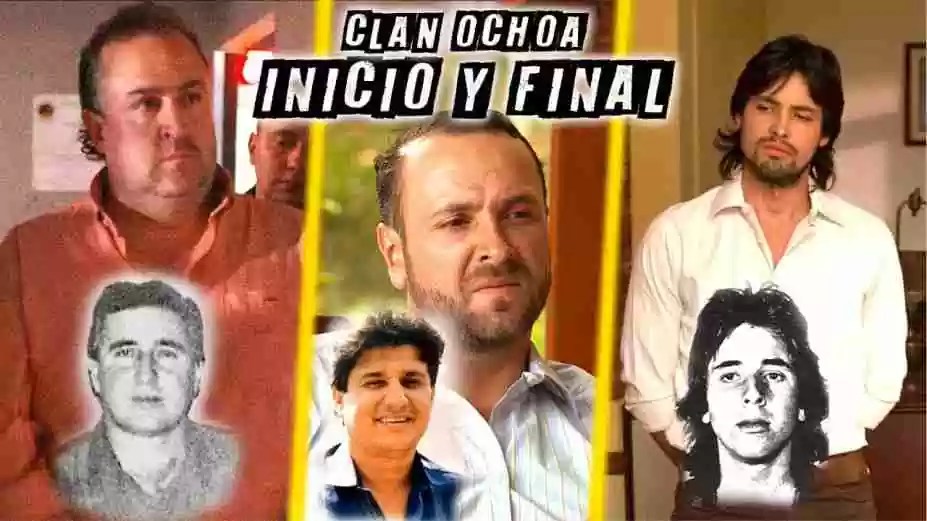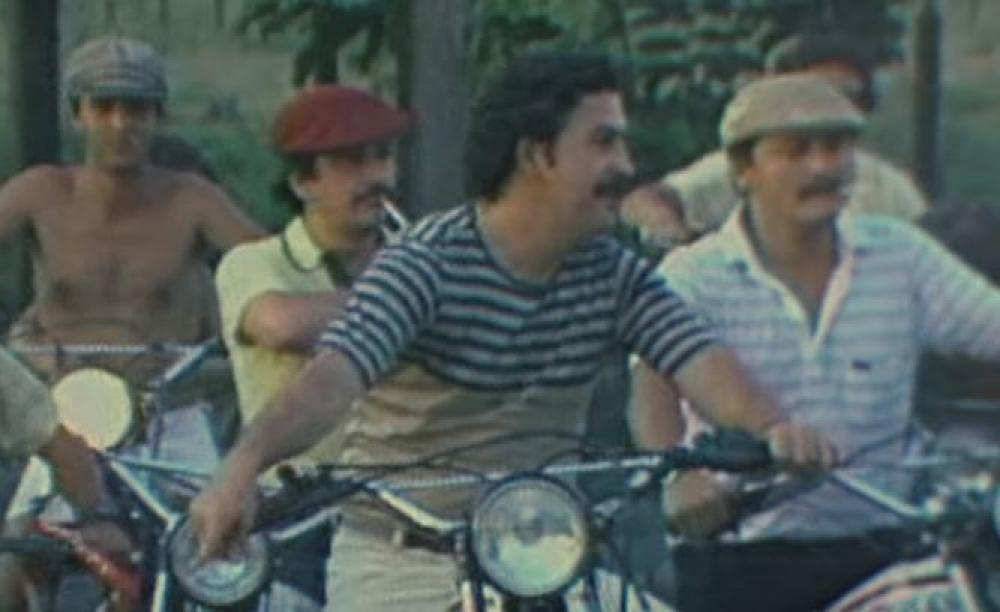Pablo Escobar, the notorious Colombian drug lord, is a name that resonates with both fear and fascination. His life story, marked by extreme wealth, power, and violence, provides a unique insight into the world of drug trafficking and its impact on society. In this article, we will delve into the motoa of Pablo Escobar, exploring his life, the rise and fall of his empire, and the lasting legacy he left behind.
Born on December 1, 1949, in Rionegro, Colombia, Escobar emerged from humble beginnings to become one of the wealthiest men in the world. His involvement in the drug trade began in the 1970s, and he quickly rose to prominence as the leader of the Medellín Cartel. This article aims to provide a comprehensive overview of his life, the operations of his cartel, and the socio-political ramifications of his actions.
As we navigate through the intricate details of Escobar's life, we will also examine the effects of his reign on Colombia and the global drug trade. The motoa associated with Pablo Escobar is not just about his criminal endeavors, but also about the cultural and social dynamics that shaped his legacy. Join us as we uncover the multifaceted story of this infamous figure.
Table of Contents
- Biography of Pablo Escobar
- Early Life and Background
- Rise to Power
- The Medellín Cartel
- Political Influence and Corruption
- Downfall of Pablo Escobar
- Legacy of Pablo Escobar
- Conclusion
Biography of Pablo Escobar
| Full Name | Pablo Emilio Escobar Gaviria |
|---|---|
| Date of Birth | December 1, 1949 |
| Place of Birth | Rionegro, Antioquia, Colombia |
| Occupation | Drug Lord, Politician |
| Date of Death | December 2, 1993 |
| Nationality | Colombian |
Early Life and Background
Pablo Escobar was born into a modest family in Colombia. His father was a farmer, and his mother was a schoolteacher. Despite their limited means, Escobar's early life was relatively stable. He showed signs of ambition from a young age, engaging in minor criminal activities such as selling counterfeit diplomas and smuggling cigarettes. This early exposure to crime laid the foundation for his future endeavors in the drug trade.
Education and Influences
Escobar attended a local school where he excelled in his studies. He later enrolled in the University of Antioquia, where he studied economics and political science. His education played a significant role in shaping his worldview and understanding of power dynamics. During this time, he was influenced by the social and economic disparities prevalent in Colombia, which fueled his desire for wealth and influence.
Rise to Power
In the 1970s, Escobar's involvement in the drug trade escalated. He initially dealt with marijuana but quickly shifted to cocaine, recognizing its higher profitability. He established connections with various traffickers and began to build his empire. His rise to power was marked by strategic alliances and ruthless tactics, which helped him eliminate competition.
The Formation of the Medellín Cartel
In the late 1970s, Escobar co-founded the Medellín Cartel, which would become one of the most powerful drug trafficking organizations in history. The cartel was known for its ability to produce and distribute massive quantities of cocaine, primarily targeting the United States market. Under Escobar's leadership, the cartel flourished, leading to unprecedented wealth and influence.
The Medellín Cartel
The Medellín Cartel was infamous for its violent tactics and extensive network of corruption. Escobar employed a strategy known as "plata o plomo" (silver or lead), which meant offering bribes or resorting to violence to achieve his goals. This approach allowed him to infiltrate various sectors of society, including law enforcement and politics.
Operations and Earnings
At its peak, the Medellín Cartel was responsible for supplying approximately 80% of the cocaine consumed in the United States. The cartel's operations were highly sophisticated, involving large-scale production and distribution networks. Estimates suggest that Escobar's personal wealth reached around $30 billion, making him one of the richest men in history.
Political Influence and Corruption
Escobar's wealth granted him significant political influence in Colombia. He sought to legitimize his status by engaging in philanthropy and even entering politics. In 1982, he was elected as an alternate member of the Colombian Congress. However, his political ambitions were marred by his criminal activities, leading to increased scrutiny and opposition.
Impact on Colombian Society
The influence of Escobar extended beyond politics. He used his wealth to build housing projects and schools, earning him a level of popularity among the poor. However, this was overshadowed by the violence and terror inflicted by the cartel. Escobar's reign led to widespread fear, and his enemies faced brutal consequences.
Downfall of Pablo Escobar
Escobar's downfall began in the early 1990s as Colombian authorities intensified their efforts to dismantle the Medellín Cartel. The U.S. government also played a crucial role in the hunt for Escobar, employing various strategies to capture him. His violent tactics eventually alienated many of his former allies and supporters.
Death and Legacy
On December 2, 1993, Pablo Escobar was killed in a shootout with Colombian National Police. His death marked the end of an era in the Colombian drug trade. However, the impact of his actions continues to resonate in Colombia and beyond. The power vacuum left by his death led to the rise of other drug trafficking organizations, perpetuating the cycle of violence and corruption.
Legacy of Pablo Escobar
Pablo Escobar's legacy is complex and multifaceted. While he is remembered as a ruthless drug lord, he is also viewed as a symbol of the socio-economic struggles faced by many in Colombia. His life story has inspired numerous books, movies, and television series, reflecting the ongoing fascination with his character.
Impact on Drug Trade and Society
The legacy of Escobar is evident in the ongoing challenges faced by Colombia regarding drug trafficking and violence. His actions have had lasting effects on the country's political landscape and have influenced global drug policies. Additionally, Escobar's story serves as a cautionary tale about the dangers of unchecked ambition and the consequences of a corrupt system.
Conclusion
In conclusion, the motoa of Pablo Escobar is a testament to the complexities of his life and the impact he had on the world. From his humble beginnings to his rise as a powerful drug lord, Escobar's story is one of ambition, violence, and ultimately, tragedy. As we reflect on his legacy, it is crucial to understand the broader implications of his actions on society and the ongoing struggles against drug trafficking.
We encourage readers to share their thoughts in the comments section below and explore more articles on our site to gain further insights into the world of drug trafficking and its ramifications.
Thank you for reading, and we hope to see you back here for more engaging content.
You Might Also Like
Frank Rosenthal Kids: Understanding The Legacy Of A Gaming PioneerPablo Escobar And The Motoa Brothers: A Deep Dive Into Their Infamous Connection
Petrie: The Iconic Voice Actor Of The Land Before Time
Elana Moussa: The Journey Of A Remarkable Woman In Business And Media
Greg Gutfeld's Journey Into Fatherhood: The Story Of His Pregnant Wife
Article Recommendations


